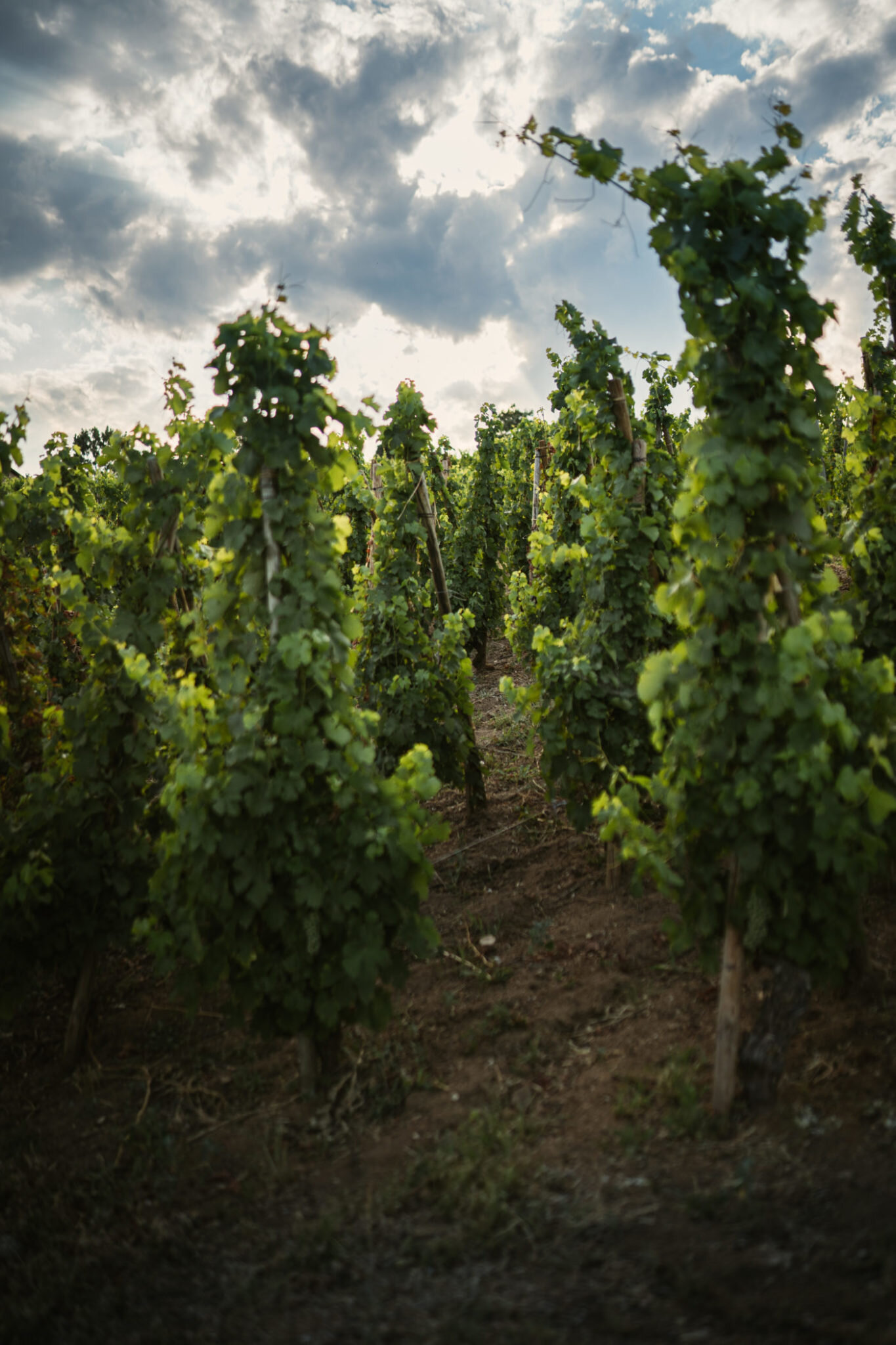françois villard
François Villard
Saint-michel-sur-rhône
northern rhône - France
story…
François made his way to the wine industry much in the same manner as many, through restaurants. However, he began his career in restaurants as a chef before slowly migrating to the front of house to work as a sommelier. His love of wine grew very quickly and he came to realize that what he really wanted was to farm vineyards and produce wine of his own. Having no proper training wine wine production much of his knowledge has come from two of his good friends, Yves Cuilleron & Pierre Gaillard, with whom he has worked alongside. Yves has been more of a mentor to François, as well as being a good friend; and François worked several harvests with Pierre to gain knowledge and experience in the farming side of things. He did eventually obtain a “Professional Agricultural Certificate” with a focus on viticulture and oenology from the School de Davayé.
In 1989 he planted his first vineyard in Condrieu, with the assistance Yves Cuilleron. In 1992 he bottled his first wine, a Condrieu, and since then he has expanded quite a bit and evolved his style and theory over time. His vineyard holdings started at 4 hectares and now have reached to 40 hectares that he farms himself. The vineyards are spread across the area to from as far north as Côte-Rôtie to as far south as Saint-Péray. In 96’ he built his own cellar and winemaking facility in Saint-Michel-sur-Rhône where the wines continue to be made at today, prior to this he made the wines in a cellar behind Yves Cuilleron’s estate in Verlieu.
Early on in his career he accumulated a fair amount of attention and praise from the critics for both his Viognier wines from Condrieu as well as his Syrah’s. These early bottling were very much in line with the times, focused more on extraction of fruit and use of new oak that showcasing a riper, more rich style of wine. Over the years François has honed his style and the wines these days are far more restrained than they once were. His use of more whole clusters and less new oak in the red wines has brought a sense of grace to the wines. Not only have his reds evolved, but so have the whites, in much the same manner there is an increased sense of grace and elegance to the wines while not losing the opulent fruit and texture that makes the wines so unique.
philosophy…
In the past two decades François’ philosophy in both the cellar and the vineyard have evolved and become more focused on both cleaner farming practices and more restrained vinifications. The farming is now done exclusively with organic practices and he is currently on track to become ECOCERT certified in 2022 for all of his vineyard holdings. Not an easy task for anyone, anywhere, but it is particularly difficult in the Northern Rhône with the combination of hard, rocky soils and regular humidity issues.
The cellar reflects his evolution from producing fuller, more ripe wines to wines of more freshness and elegance. Majority of his barrels are older and vary in size from Burgundy cask size all the way up to foudre. Fermentations are always done spontaneously on native yeasts and his use of SO2 during vinification is very minimal. Depending on the cuvée and the vintage fermentations take place in a mix of vessels including fiberglass tank, stainless steel, & wooden vats. All of his wines go through full malolactic fermentation naturally. He does still use a limited amount of new oak in the aging process but this is always in the minority and is not used for all of his wines. Overall he has moved toward very low amounts of total SO2 being used throughout the wine production. He has no intentions of eliminating it entirely but is definitely enjoying the success and end product he is getting with a more minimal dosing program. François does not sterile filter any of his wines but he does do some gentle fining occasionally, typically with bentonite clay or egg whites to a lesser extent.
Worth noting is his preference to work with botrytised fruit in his Condrieu wines. This is not a steadfast theory, but he prefers the fruit to have some botrytis over none at all but only if it happens without the fruit reaching too high of a potential alcohol level, it is all about balance. This preference is notable in the aromatics that you find in his Viognier wines, though it does not occur every vintage when it does there is a elevated sense of lift to the wine.
Vineyards…
His vineyards and therefore his bottlings are almost split evenly between white & red. He owns and farms 40 hectares of vineyards across 6 separate villages and he sources fruit from another 25 hectares of vines throughout the region to round out his bottlings.
Having started his winemaking and farming career in Condrieu it comes as no surprise that he produces several different Condrieu bottlings, 4 to be exact. He also has vineyards within Saint-Joseph where he produces a handful of wines, both red and white. Along with his Saint-Joseph bottlings of Syrah he also produces Syrah from Crozes-Hermitage, Cornas, & Côte-Rôtie; the latter being the village his most recognized for when it comes to red wines. In the village of Saint-Péray he has a decent amount of vineyard holdings from which he produces a couple of white wines, the entire village is planted exclusively to white grapes.

